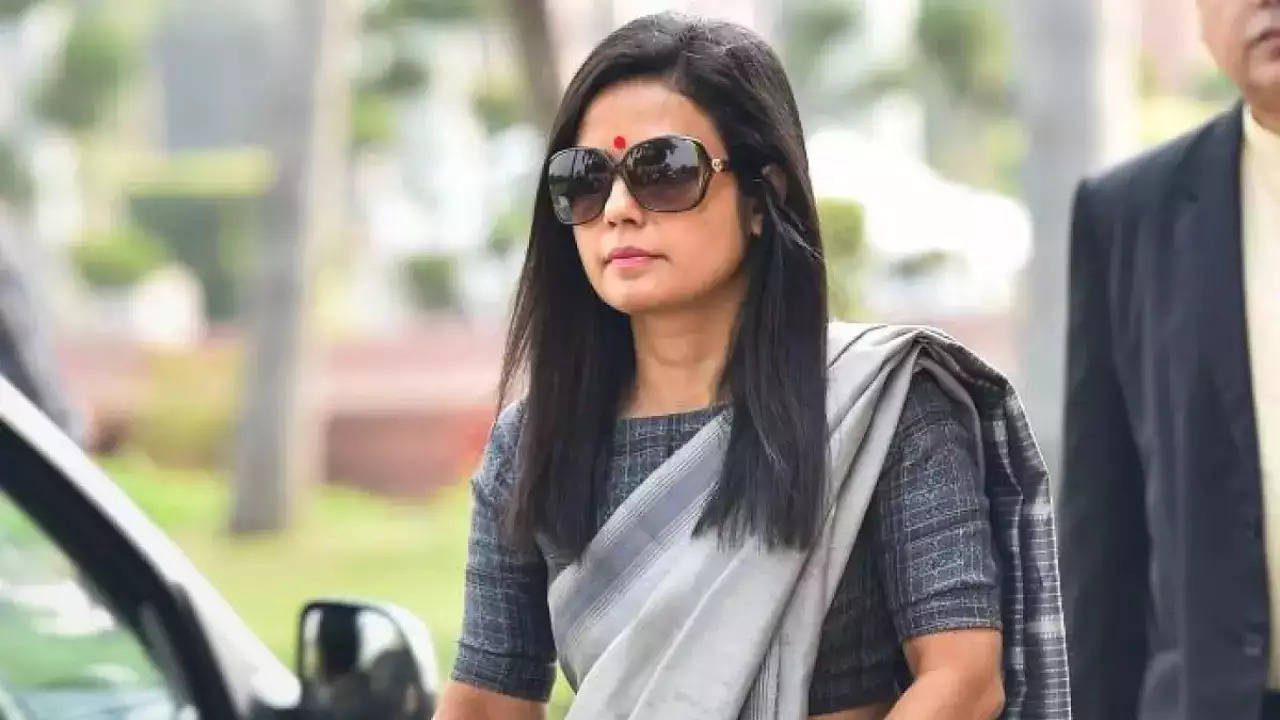Explained: The Legal Options Before Mahua Moitra, Expelled From Lok Sabha After Cash-For-Query Allegation
The Trinamool leader now has the right to challenge the decision before a court of law. Any grounds for such a challenge would likely revolve around potential illegality, unconstitutionality or a denial of natural justice during the committee's investigation.

Mahua Moitra blasted the Ethics Committee over its report, accusing it of punishing her without evidence.
Mahua Moitra, a first-time MP representing Krishnanagar Lok Sabha seat, was expelled from the Lok Sabha on Friday after she was found guilty by the ethics panel in the 'cash-for-query' case. The Trinamool Congress leader was found guilty of accepting gifts and cash from a businessman to ask questions in Parliament to corner the Narendra Modi-led BJP government. The fiery leader blasted the Ethics Committee over its report, accusing it of punishing her without evidence.
"MPs are like conveyor belts to bring questions from general public to Parliament; kangaroo court punished me without evidence. There is no evidence of cash or gift, ethics panel decided to hang me without getting to root of the issue. Ethics panel findings are solely based on written testimonies of 2 persons whose versions contradict each other in material terms. One of 2 complainants my estranged partner with mala fide intention who masqueraded as a common citizen before ethics panel," Mahua Moitra said after her expulsion from Lok Sabha.
The development has prompted discussions on whether the act of soliciting favours in return for parliamentary actions constitutes illegal gratification.
The Trinamool leader now has the right to challenge the decision before a court of law. Any grounds for such a challenge would likely revolve around potential illegality, unconstitutionality or a denial of natural justice during the committee's investigation.
Legal Options Before Mahua Moitra
Moitra can approach the Supreme Court or the High Court against the Ethics Committee's decision. She could request the court to overturn or provide an order against the decision. The plea would be based on the grounds of natural justice and principles of fair hearing.
The second option before the Trinamool leader include challenging the jurisdiction and conduct of the Ethics Committee. She can argue that the committee overstepped its mandate, that the proceedings were irregular, or whether they were conducted with malice or prejudice.
Thirdly, Moitra, through her party or independent avenues, can approach senior Parliament or government officials, alleging bias, prejudice or any sort of malfeasance in the Ethics panel's proceedings.
Lastly, she can approach the Delhi High Court seeking relief in the defamation suit filed by her against several individuals. If Moitra can prove that the accusations against her were slanderous, fabricated, or damaging to her reputation, she can hope for a reversal of the Ethics Committee's decision.
End of Article
Subscribe to our daily Newsletter!
Videos





03:53
Urfi Javed Flaunts her Topless Style | Jennifer Mistry's HEARTWARIMNG note for TMKOC

04:45
'World Used Kashmir Against India': What EAM Said On J&K's Art 370| Page From Times Now Archive

02:59
Breaking News: SC Upholds Abrogation Of Article 370 | No Special Status For J&K | Latest Updates

04:35
NC, PDP, And BJP Reacts On Abrogation Of Article 370 | Will Centre Be Vindicated? | Latest News

02:42
Israel Hamas War | Netanyahu Says 'Hamas Is Surrendering' | What's Happening In Gaza? | World News














